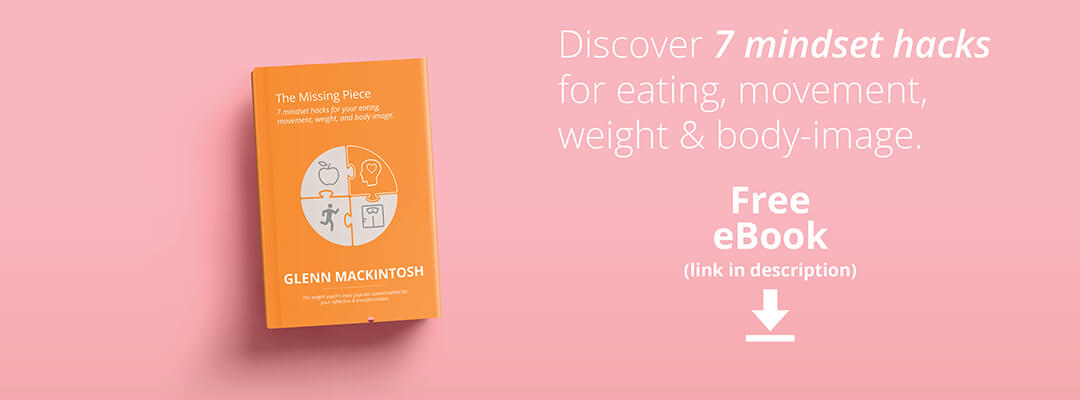
Last night, I went to “No Lights, No Lycra”. Oh my god, was it fun. I guess it’s sort of an “anti-exercise class”. They turn the lights right down (and your levels of embarrassment with it) and the music up (and you feel like you’re in a dance hall instead of a gym class). As the name suggests, you wear casual clothes rather than exercise gear, so it’s even cool if the latest Lorna Jane doesn’t fit you ;-).
Why am I telling you this? Well, in addition to encouraging you to go to NLNL (which I do), it’s because I want you to rethink your attitude to “Exercise”. For some people exercise is a bad word; a synonym for “pain”, “embarrassment”, or “punishment”. For this reason, you may want to use a different name to mark your new conceptualisation. I prefer “movement” or “physical activity”, “physical play”, or just talking about the type of movement itself (e.g., talking about dancing can remove the unnecessary exercise label from the activity).
As with dieting plans, so many times we sabotage ourselves from the get-go with exercise plans that ignore our psychology! We think first about the physical benefits; the weight loss, the cardio improvements, the increased muscle mass…and then go about creating an exercise plan we don’t like to achieve it. I really think this is why over half of people drop out of their exercise plans within six months, even though exercise has more research proven benefits than you could poke a barbell at! Seriously, the physical benefits of physical activity make it look like a magic pill!! And when you look at the psychological benefits of moving your body, there is pretty much nothing that psychs can measure that doesn’t get better with physical play!!!
So how do we stay at it then? At Weight Management Psychology, we have a wonderful ability to help people develop a love affair with moving their bodies. We can turn people 180 from hating to loving (although it often takes a couple of years to do it). Our personal training retention rates are around three times the industry average. So naturally, people ask as what our secret to physical activity adherence is….
I have a little laugh to myself when asked about our “secret”, as the secret to exercise adherence is…to focus on the predictors of exercise adherence (duh!)…and guess what? They are psychological factors, not physical ones. So our approach is to prioritise the psychology first*, helping you develop a great relationship with physical activity that you can easily sustain for life 🙂
When focusing on the psychology of a great relationship with physical activity, we talk about the Five Es. I want to share them with you and some ideas to develop them in your physical play:
- Enjoyment – Focus on activity you feel you can enjoy, or can really learn to enjoy. If you prefer to walk by yourself, go by yourself. If you hate the gym, never step foot in there again. Get it like you like it.
- Efficacy – Efficacy, (or self-efficacy as psychologists call it) – is about your specific confidence in being able to do an activity. For example, I have a pretty high “doing psychology” self-efficacy, and a super low “cooking for eight” self-efficacy! Your efficacy is closely related to your motivation. If you spend 90% of the time thinking “I can’t do this” chances are you’re going to be looking for the nearest excuse pretty quickly! The reverse of this, we follow a 90% – 10% rule; you should feel a sense of confidence in your activity 90% of the time (even if you have to start slowly), with about 10% being challenging deliberate practise to learn some important skills to take you to higher levels if needs be. Surprisingly to many, you can actually become really fit by building your activity slowly and mainly within your comfort zone!
- Enthusiasm – Choose activity you are motivated to do and that relates to goals that motivate you. For example, if you want to be able to walk a half marathon, walking would be a main focus, with some resistance, stretching, and physiotherapy as extras, not the main part. One important point to remember here though, is that you don’t know what will motivate you – you have to try. For example, my mum made me play rugby, rowing, and cricket at school – I was into the martial arts and didn’t want to do it as I thought it was for “jocks”. I ended up loving rowing and rugby, and playing until year twelve. I made great friends, developed character, and improved my health. I was probably the worst cricket player in the history of the school, and pretty much hated the whole affair, so stopped after one season, but I knew I wasn’t motivated to play cricket because I tried. Examples in my practice of middle-aged women who’ve fell in love with Muay Thai, Half-Marathons, and Performance Dancing tell me you should parent yourself to try also! See blog “Growing Pains” for some help here.
- Empowerment (over Embarrassment) – For many people activity comes with embarrassment (e.g., due to fitness levels, weight, and comparisons just to name a few). Empowering yourself to overcome embarrassment may be a combination of choosing certain types of low-embarrassment activities and working your way into others as you feel comfortable, learning resilience to others opinions about you (see blog “Love is the New Hate” for some more help here), and/or improving your own body-image (see blog “5 Simple Steps to Body Acceptance for even more help here) so you can feel more comfortable to with your way of moving.
- Empathic Problem-Solving – Naturally, there are many barriers to physical activity (time, location, cost, physical, and mental barriers to name a few). Rather than see your barriers as excuses that you just need to “get over”, I encourage you to really problem solve them from understanding perspective – finding a workable, sustainable, and personal solution to the problem. If you want to, you can download our Problem Solving Worksheet here, it’s the same process I do in session with clients, and it works really well just putting the ideas on paper.
So with this new information, I’d encourage you to do an audit of your activity, and see where you can bump up any (or possibly every) of the 5 Es, so you can get your movement the way you like it! A final note, for most people, this will mean teasing apart the activity of exercise, and the goal of weight loss – exercise for weight loss doesn’t really work that well, and nothing is much fun if it’s secretly a punishment for being too fat!
I created this blog for people just like you.
If you found it valuable, please help me share it with them!
*I believe a bad approach is one where the psychology is ignored. An ok approach is where the psychology is prioritized alongside the physical activity. The best approach is where the psychology is prioritised over the physical benefits. I was having a chat about this with an Exercise Physiologist, and he nailed it by saying “If I develop the best exercise plan for someone, and they don’t follow it, it’s not really the best exercise plan, is it?” – BINGO!





